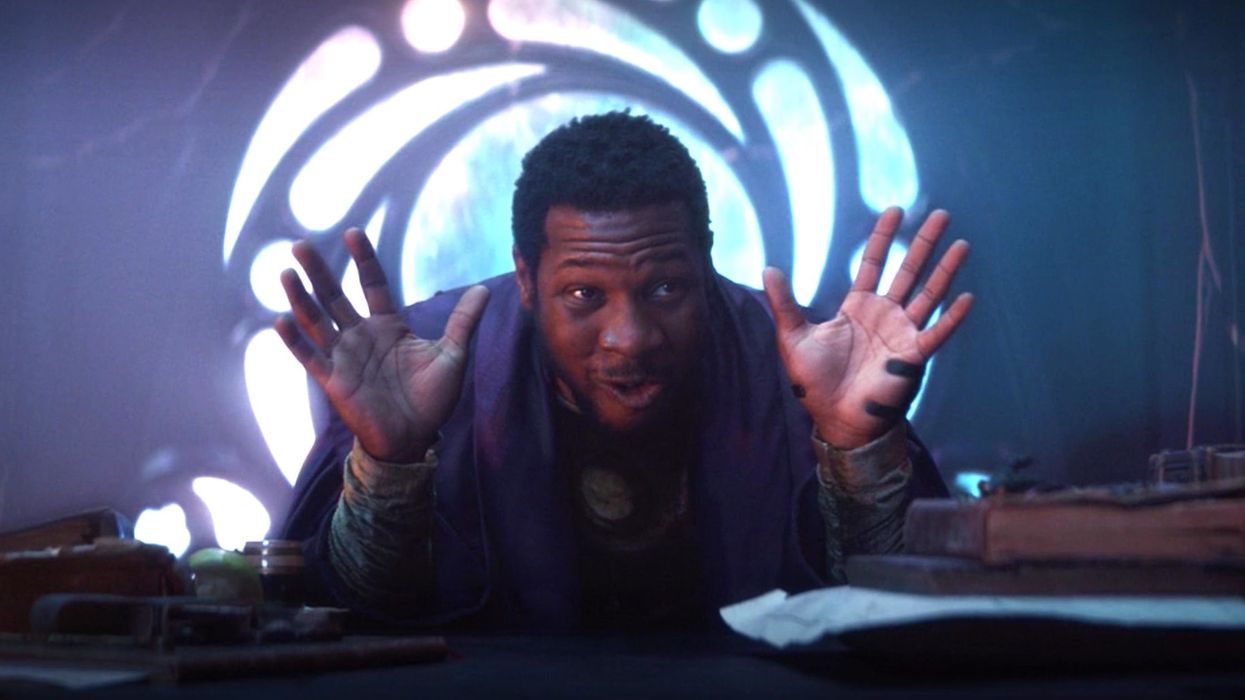Why We Must Understand the "Pure Clown" of Filmmaking
Embracing clown work is to embrace the freedom within our craft.

Jonathan Majors has joined the world of superheroes, emerging as the new central villain in the Marvel Cinematic Universe as Kang the Conqueror. We’ve seen him before in the MCU in the role. His brief appearance as He Who Remains in Loki left us wondering and wanting.
The energy Majors brings to the screen is notable.
“It’s become a cliche over the decades to compare somebody to a young Marlon Brando, but Jonathan has that,” director Peyton Reed (Ant-Man and the Wasp: Quantumania) told the New York Times.
Perhaps it's charisma or a sense of humanity that Majors brings to each of his characters, grounding them in a close reality that few actors can do, or maybe it’s his approach that was carefully crafted at the David Geffen School of Drama at Yale that is often missing in cinema, but is slowly being noticed.

Like Yahya Abdul-Mateen, Jonathan Majors understands the art of the clown. Studying under Christopher Bayes, one of Yale’s heads of physical acting, Majors learned how to leave the “social body” behind to tap into the playfulness and audacity of a character. He spoke about this with the New York Times.
Hollywood has long struggled with providing good roles for Black actors, often confining them to the stereotype rather than fully realized characters. Often, Black actors are reduced to the comic relief of a white lead or collateral damage in action and horror films. Majors offers something missing in Hollywood by bringing comfort with clowning—meaning that he finds comfort with the quiet chaos of the ability to portray a wide range of well-written characters.
“The clown is the unsocialized self,” Major recalls Bayes telling him. “It’s the person who’s never been told no. What would you be like in your body if you’ve never been told ‘no’ or ‘be quiet’ or ‘sit still’ or ‘you’re too much of this and not enough of that?’”
Bayes directed Majors in the Commedia Project, which Yale has described as its “experimental space to take the temperature of the world, the society we live in, and ourselves.”
The clown is an entertainer who molds themselves to the part they have chosen to play. Each character is different, but true to the story, adding layers of depth and meaning that pique the audience's curiosity and keeps them returning to uncover more secrets of the character. Majors has done this through his genre-bending roles in Lovecraft Country, The Last Black Man in San Francisco, and Marvel’s Loki.
Whether the character is a fool or a king, Majors flashes qualities of both in each character he chooses to play, asking us to look at him through a lens that has always existed for actors but has excluded people of color for far too long.
Acting is a tool used to entertain and surprise the audience, cast, crew, and oneself. It is to create a memorable performance that touches people in a specific way. Majors does not exclude the clown from his dramatic performances to his highly important, more mainstream role in the superhero genre. What matters, to actors and filmmakers alike, is that we are drawing the audience into the world we have created.

As filmmakers, we should learn to embrace the “pure clown” of our art. What would we create if we had never heard the word “no” muttered? Would we let go of judgment of ourselves and what we think others want?
To embrace clown work is to embrace the freedom of creativity and trust in your ability to create something interesting and entertaining. There should be something exciting about each project you make, even if you look back at it years later with a little bit of wisdom and understand where the project's flaws are. Filmmaking should be passionate, inspiring, and let us look inside the creative mind during the current state of the world.
If you have the chance to create something meaningful to you, then take it without fear.
Let us know what you think in the comments below.
Source: The New York Times













